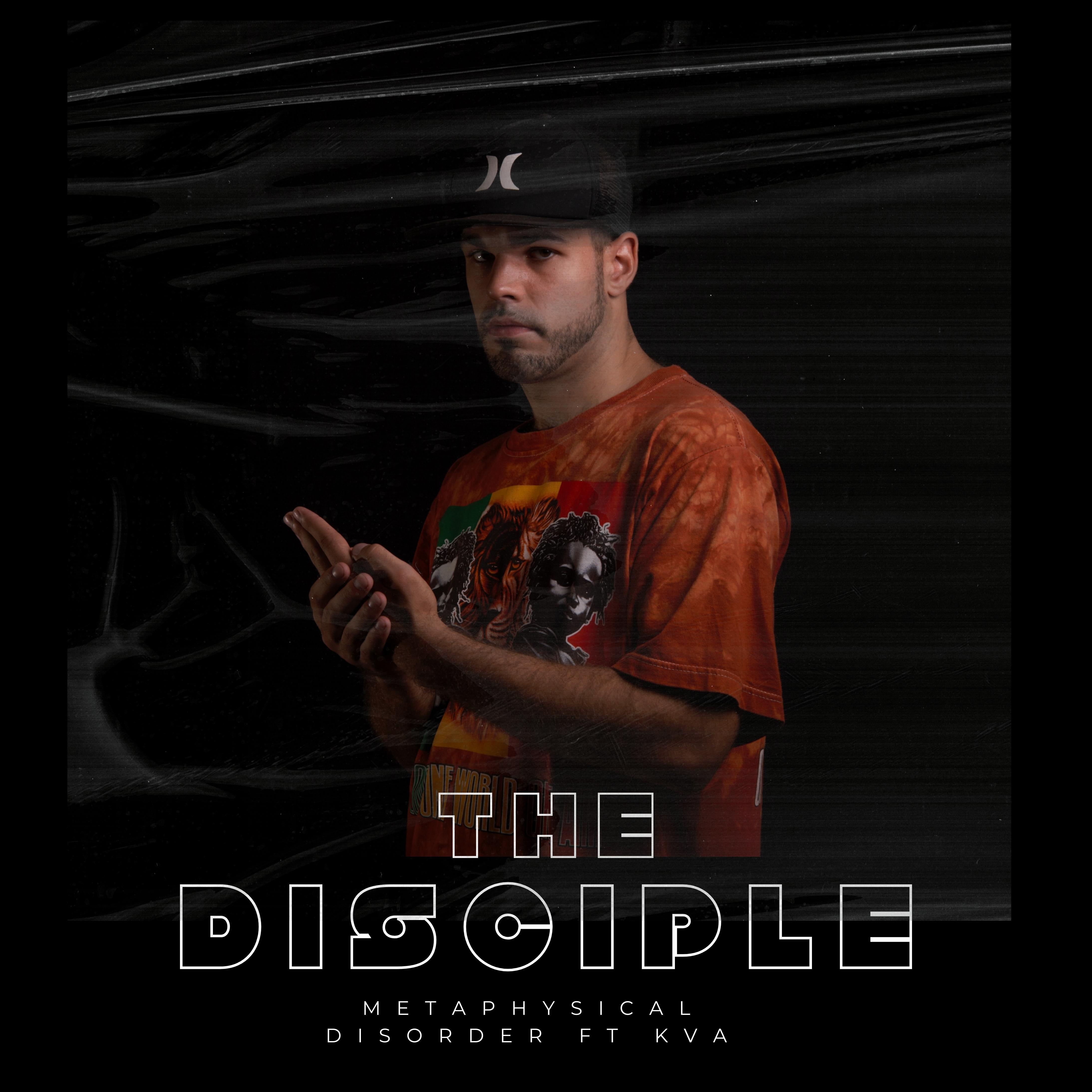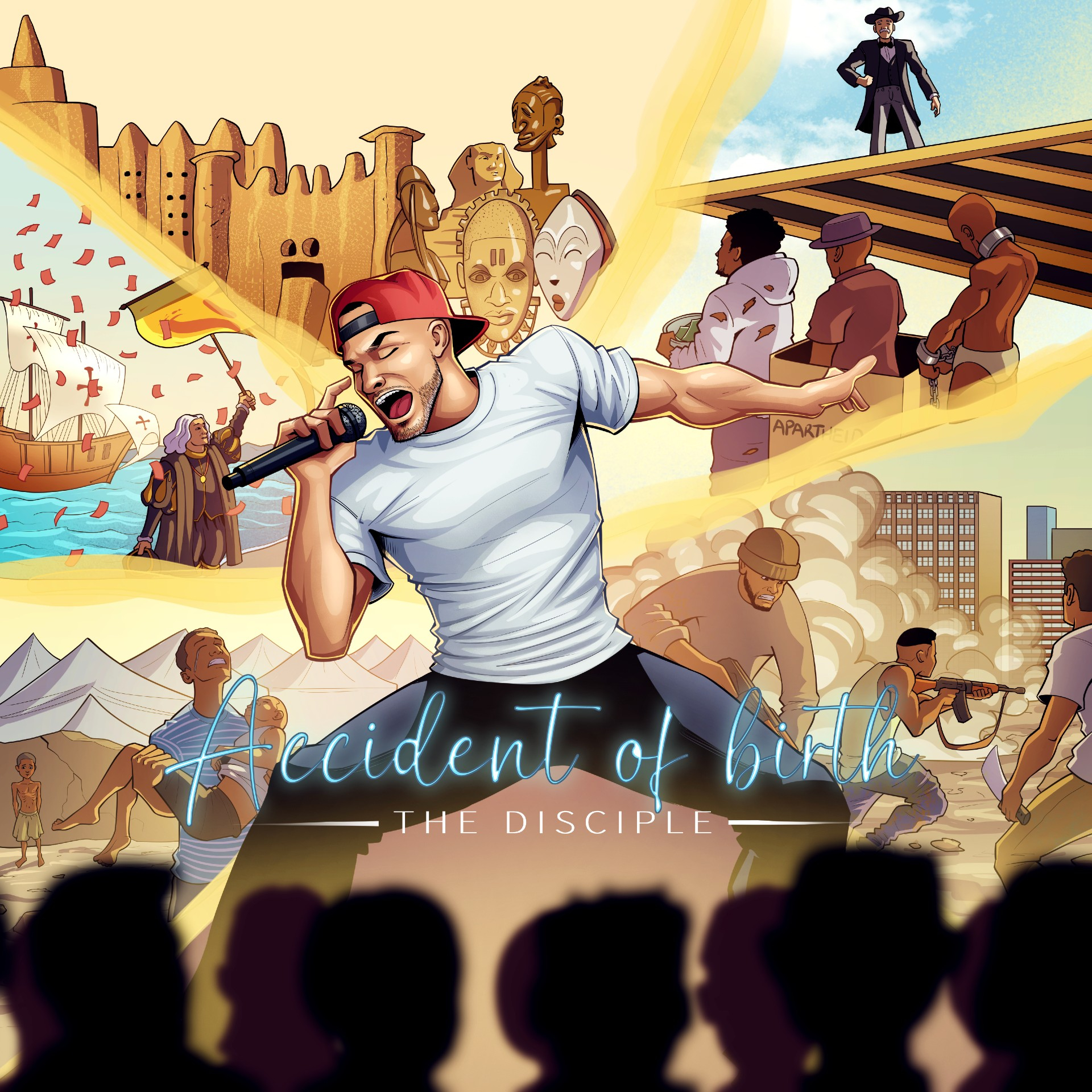An Interview with Swiss rapper 'The Disciple'
Glad to have the opportunity to connect with you, having listened to your song, ‘Metaphysical Disorder’. ‘Metaphysical Disorder’ is quite punchy and heavy on the lyrics. Philosophical - we must admit, and truthfully so. What’s the inspiration behind your lyrical take in defence of Afrocentricism?
Since I always liked rap music, I also became interested in the origins of Hip-Hop culture where black consciousness is an essential part of conscious rap. Thus, the political aspect of rap music gained importance in my life.
Reading books, amongst others, by the Swiss sociologist Jean Ziegler, who talks a lot about Western exploitation in the Third World, as well as travelling through Central America made me the person I am today and got me conscious about the vast cultural richness of Africa.
Overshadowed by the overbearing focus on Western civilization, I felt the need to give something to the people, reminding them of how influential African peoples were in shaping the world. Example, in music, but also in science.
On your biography, you identify as Swiss. Now, that leaves a lot of questions, especially with regards to your origin. Do you have any African roots?
I don’t have any African roots, but I became interested in African culture and history when I was fourteen meeting African people in my hometown. I started going to African festivals and events more and more.
Considering acts of cultural genocide committed against African societies, which you talk about in ‘Metaphysical Disorder’, how do you envision the world if this aspect of our collective history had not happened?
The world would probably be made up of other entities. The system of nation-states that we live in is a European system that was imposed on Africa (and the world), and in a certain way maintained by African elites that are loyal to European powers. This European system was made to give an entity to quite a homogeneous people, so it wouldn’t naturally apply to African societies which are way more heterogeneous. Thus, those entities would have been defined by other common features of African people. There would be more African languages as official languages in each entity and not only recognized as a national language. (South Africa is a special case though, with a majority of official languages being African languages.)
African religions would also be more dominant in societies and less people in Africa would worship a white god. (Even Christianity developed in Ethiopia around the same time as it developed in Europe.)
Do you think that the effects of cultural genocide against Africans are in any way reversible or redeemable?
Yes, it is redeemable, and it starts by arousing an interest in Afrocentrism. African studies, i.e., are quite a new subject to learn at universities. It only started during the 60s when most African territories gained their (political) independence.
Since we can’t change the past, it is never fully reversible, I think.
Talking about redemption, there are talks of reparations, in the US especially, for slavery and the centuries of free labour which African slaves rendered in building America. Do you think reparations are the way to redeem not just ills of the centuries of slavery, but for culturally disconnecting generations of Afro-Americans from the African continent? And in what forms should the reparations rightly take?
Talking about economic reparations and giving money back to improve African-American communities as well as paying better salaries wouldn’t necessarily compensate for the disconnectedness of generations of Afro-Americans from the African continent since they were growing up surrounded by American culture.
The money should also be used to restructure African-American societies and as I mentioned above, to make people more interested in Afrocentrism.
New Orleans is a place where more of the original African culture has been able to be retrieved because the French were a little bit laxer with African culture then other colonial powers when they sailed to the New World.
In Cuba, for example, African origin plays a central part in society where the “Santería”, an African diasporic religion, is the main religion. Other countries, or American cities, could structure their society in a similar way.
How has reception for ‘Metaphysical Disorder’ been?
The reception of “Metaphysical Disorder” has been good so far. Not only Africans but also people of European decent showed an acute interest in my music.
Critics have also been good.
‘Metaphysical Disorder’ is a single off your coming album, and you plan to release singles off the album periodically, in the build up of the album release proper. What’s the strategy behind it?
My plans are to have an album ready when I come back to South Africa because I don’t want to go there just for a vacation. Since my producer is in Cape Town and I am in Switzerland it’s not easy to work on all the details of a song. I need to be sitting next to him for most tracks in order to release them. COVID-19 and load-shedding also delayed the process.
What are we to expect from the album? A hint, if you will.
The album is Afrocentric and revolutionary. Since “Metaphysical Disorder” talks about cultural and psychological aspects of exploitation, other tracks talk about the economic and political aspects. But some tracks also talk about Hip-Hop and emceeing, or just about positivity.
What do you have planned in the nearest future? Tours, media appearances, features?
My plans are to establish my artist profile and finding organizers that want to book me for live shows in South Africa as well as in other African countries, and even in the UK.
Thank you for this opportunity to partake of your creative process with you. Before we wrap up this interview, do you have any word for our listeners and readers on UbuntuFM who today will be encountering your music for the first time?
Keep doing your own thing and work hard to achieve it. Read and learn a lot. Follow me on Instagram: “thediscipleofficial” and spread my newly released track to everyone that might be interested. If you know any organizers and managers or if you want to do a collaboration then let me know directly: “[email protected]”, whats app: 0041 79 475 08 28

